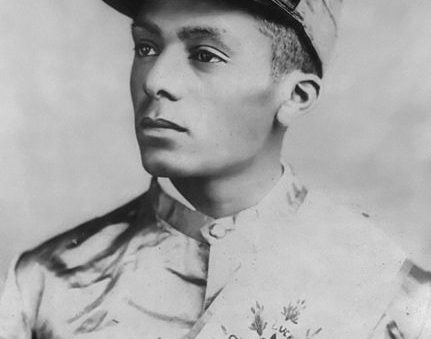
Black history is under attack. Across the country, we are witnessing a coordinated effort to erase the contributions of Black leaders, women, and other historically marginalized communities. From book bans to the dismantling of diversity programs, these attacks are more than just political maneuvers—they are attempts to rewrite history, exclude Black excellence from public discourse, and strip away hard-fought progress.
The latest move by the U.S. Department of Defense exemplifies this disturbing trend. A webpage honoring a Black Medal of Honor recipient was removed, and in an apparent attempt to reframe the narrative, the letters “DEI” were added to its web address. After public outcry, the page was restored, but the “DEI” label was scrubbed. Meanwhile, thousands of pages recognizing the contributions of women and minorities in the military have been deleted, with officials justifying these actions by arguing that diversity is not a strength, and that all “diversity, equity, and inclusion” efforts should be dismantled.
But the erasure doesn’t stop at the digital level. The Department of Defense has also removed the only female four-star officer on the Joint Chiefs of Staff, Navy Adm. Lisa Franchetti, and dismissed its Black chairperson, Gen. CQ Brown Jr. This is not just a policy shift—it is a deliberate rollback of representation at the highest levels of military leadership.
This attack on diversity and historical recognition is part of a larger, national movement aimed at suppressing Black voices and removing Black history from classrooms, government institutions, and corporate spaces. Schools are being forced to rewrite curricula, removing critical discussions about systemic racism. Books about Black history, written by Black authors, are being banned at alarming rates. Corporate DEI programs are being dismantled under legal and political pressure, forcing Black professionals to fight for a seat at the table in workplaces that claim to value equity.
This is not just about the past—it is about controlling the future. When history is erased, future generations lose the ability to learn from it, to understand the struggles that shaped this country, and to build upon the progress that was so hard-won. The erasure of Black history is a threat to democracy, equality, and justice.
How We Can Push Back
We cannot afford to be silent. Here’s how we can push back against this erasure:
Read and Share Our Stories – Books like Black Firsts in Los Angeles and others that document contributions of Black Americans must be actively supported, shared, and included in educational spaces.
Defend Black History in Schools – Support educators who teach Black history and push back against curriculum restrictions. Advocate for legislation that protects inclusive education.
Hold Institutions Accountable – Companies that once championed DEI must not be allowed to quietly dismantle their initiatives. If they benefitted from the work of Black individuals, they must continue to invest in racial and gender equity.
Speak Up in Media and Policy Spaces – The erasure of Black history is a crisis that demands attention. Writers, journalists, activists, and public figures must continue amplifying these stories.
History belongs to all of us—but if we do not actively preserve it, teach it, and fight for it, it will be rewritten to exclude us.
Dr. Randal Henry is the author of “Black Firsts in Los Angeles: Encyclopedia of Extraordinary Achievements by Black Angelenos” and the Founder/CEO of Community Intelligence.






